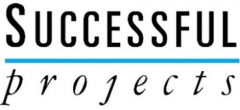Introduction to Project Management
The professional management of projects requires a disciplined approach to defining, planning, strategizing, communicating, and controlling a project. It is assuring that the project will deliver.
The PMBOK® says project management is, “The application of knowledge, skills, tools, and techniques to meet the project requirements.” The benefits derived from practicing good project management are very valuable.
Benefits of Project Management
Project Management creates a vision for success, for clients and teams, and gets everyone on the same page of what’s needed to stay on track for success. Professional project management provides many significant benefits, including the following:
Stakeholder Benefits
- Better scheduling and budgeting
- Better cost containment
- Better communication throughout project including process mapping and progress reporting
- Better change management processes including configuration management
- Better quality planning, quality assurance processes, and quality acceptance steps
- Earlier attention paid to “red flags” – project problems that may be indicators of more trouble to come.
Team Member Benefits
Allows the creative team the freedom to focus on the activities most aligned with their talents and passions
- Less rework
- Better definition of work requirements
- Better understanding of roles and responsibilities
- Improved productivity of work through
Functional Manager Benefits
- Better allocation of resources
- Better communication throughout the company
- Improved work instructions
- Allows functional manager to focus on the department resource leveling, staff retention and training, and quality processes for their specific area.
- Improved project documentation processes and expansion of the organizational retained best practices.
Senior Manager Benefits
- Better use of company resources
- More attention to risk management
- Better project cost and schedule estimating
- Better project monitoring and control
PM Toolbox
- A project management methodology
- Work breakdown structures (WBSs)
- Software tools
- Responsibility Assignment Matrix (RAMs)
- Estimating techniques
- Methods for measuring variances
- Procurement contracts and audit tools
- Quality plans
- Risk plans and risk assessment tools
- Change control plans and forms
- Communication plans and forms
- Team development techniques
- Scope verification and control tools
- Performance reporting forms and techniques
- Methods for evaluating project alternatives
- Lessons learned database
- Project archiving systems
- A common project management vocabulary
“If you fail to plan, you plan to fail.” – Anonymous
“What we are looking for is managers who are awake enough to alter the world as they find it, to make it harmonize with what they and their people are trying to accomplish.” – Tom DeMarco The Deadline

